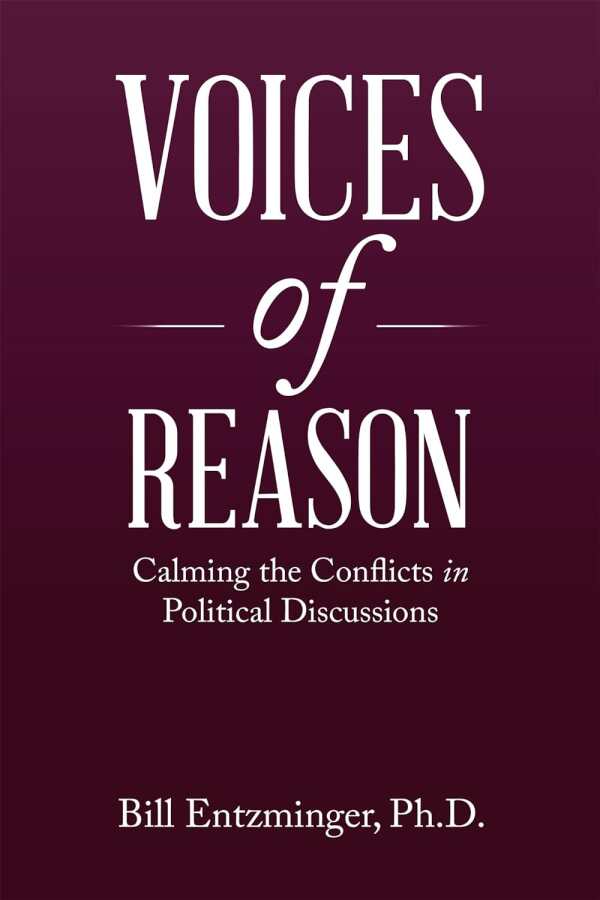Voices of Reason
Calming the Conflicts in Political Discussion
Voices of Reason is an accessible, short introduction into the deeper world of political philosophy.
Psychotherapist Bill Entzminger’s Voices of Reason is a primer on the rudiments of political thought that cuts through the tangle of familiar terminology in order to provide a clear-eyed introduction to the subject.
Entzminger divides political attitudes into four categories that fall on a familiar left-right spectrum: radical, liberal, conservative, and reactionary. In Entzminger’s analysis, these labels don’t describe sets of policy positions, but rather states of mind that apply across radically different social realities. Here, those with conservative attitudes wants to preserve “what is right and smart about the systems that are in place,” while liberals often want to “give attention to the things they see as wrong or inferior” about those systems. “Reactionaries,” in this reading, are extreme conservatives, and “radicals” are extreme liberals. And the book extends these analyses to various historical crises, showing how these general attitudes can have radically different meanings in different contexts. For example, it contextualizes the US’s Founding Fathers (cherished among contemporary conservatives) as true radicals, while interpreting the average postwar Soviet citizen as a “traditional conservative.”
The book’s choice to categorize politics in terms of general outlooks (how individuals perceive themselves in relation to their government, and their duties to their authorities and social systems) makes it a crisp introduction. Straying from culture-war talking points and sticking to the fundamentals of political philosophy, it makes an objective, persuasive case in favor of “cooler heads” prevailing over violent rabble-rousers. Still, its “political compass” model, which interprets political positions along two axes—one for social issues and one for economic issues—is quite familiar. The result is a text that forestalls a number of useful distinctions that would help to level the terrain for those struggling to understand the muddled language of political landscapes. “Reactionary” and “radical,” as interpreted here, are superfluous terms; they only indicate “extreme” and have pejorative connotations.
Also absent from these analyses are close examinations of geopolitics in recent history. While there are hints at the ramifications of the Arab Spring (a clear test case for the book’s ideas about the precariousness of democratic ideals in traditionally authoritarian political contexts), the book’s analyses cut off in September of 2012. The ensuing fallout from the waves of unrest, regime changes, and civil war in the last eleven years are just hinted at. Elsewhere, the use of contemporary examples is too dated, as with the book’s swift exploration of Vladimir Putin’s rise to power but avoidance of the Russian invasion of Ukraine. Published nearly three years after a catastrophic military coup d’état in Myanmar, Voices of Reason appears trapped in the wrong decade: “After decades of one of the most brutal military dictatorships…Myanmar has in the last years allowed a rather radical liberalization.” Clearly, these portions were written years before; many of the book’s examples are thus rendered if not unusable, then at least outmoded.
Voices of Reason is a clear entrée into political commentary for the otherwise uninitiated.
Reviewed by
Isaac Randel
Disclosure: This article is not an endorsement, but a review. The publisher of this book provided free copies of the book and paid a small fee to have their book reviewed by a professional reviewer. Foreword Reviews and Clarion Reviews make no guarantee that the publisher will receive a positive review. Foreword Magazine, Inc. is disclosing this in accordance with the Federal Trade Commission’s 16 CFR, Part 255.

